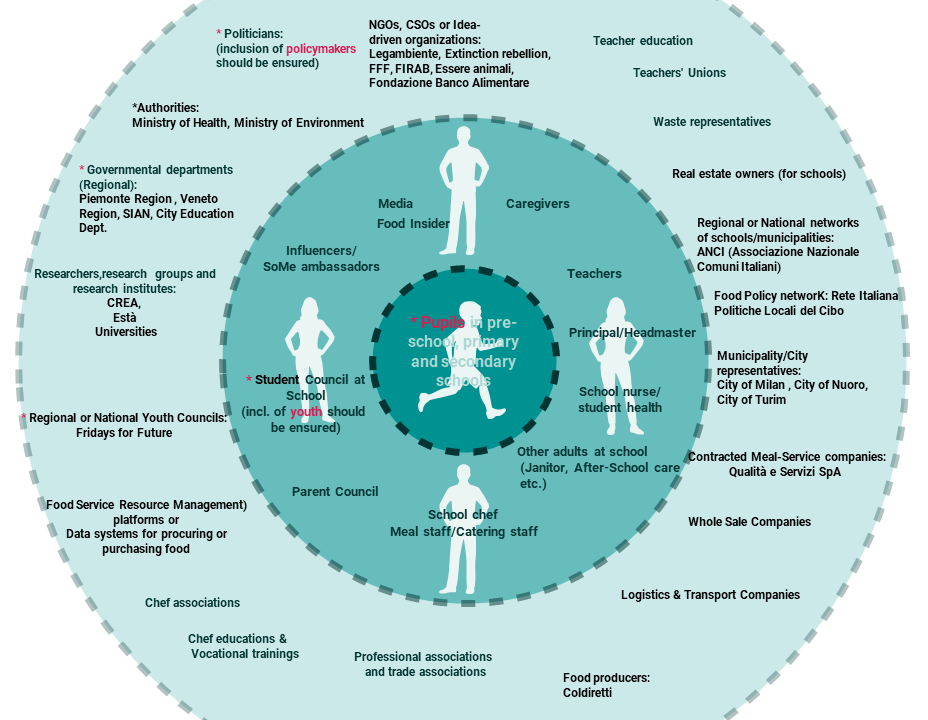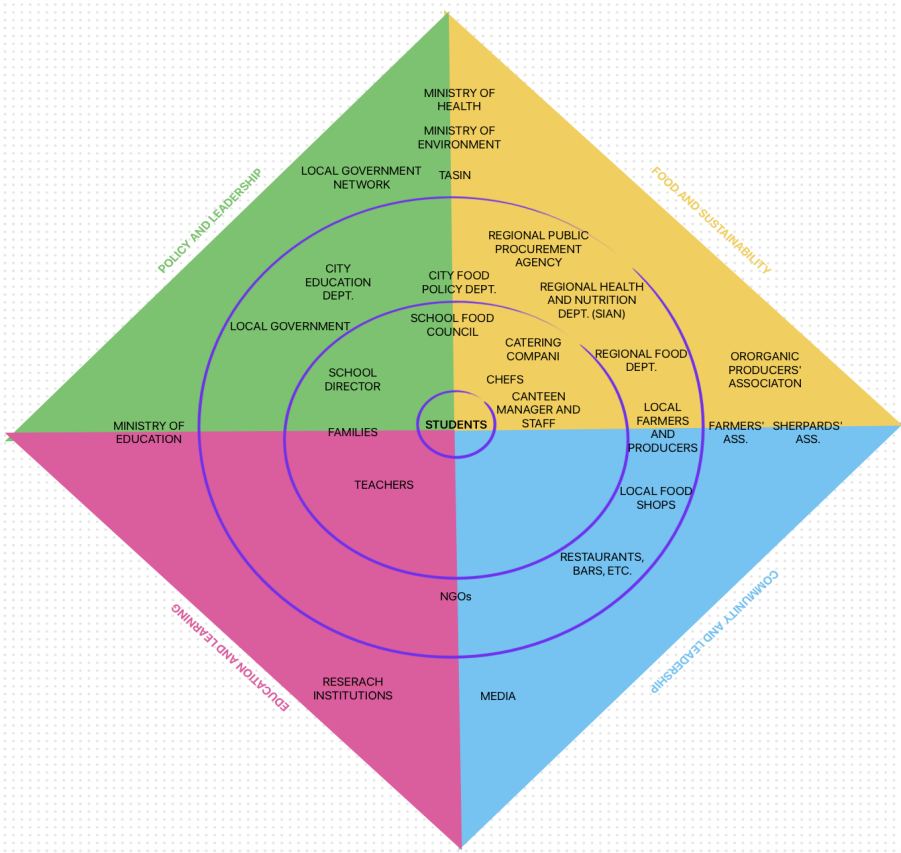Local governments around the world are working to make their cities and food systems more sustainable, healthy and climate resilient. And since this task involves many challenges, progress lies in the hands of various, committed partners and stakeholders.
Progressive governments have long recognized the power and potential of engaging key stakeholders in the creation and implementation of ambitious action plans or strategies. Public engagement and civil society participation are indeed essential components of successful public policy development. Both residents and stakeholders are curious about public investments, especially those that directly affect them or can benefit them.
School meals are definitely a topic that arouses interest and – especially when it comes to the topic of meat consumption – is controversial. While citizen feedback in a negative form can be intimidating, public engagement is actually a way of translating residents’ and stakeholders’ critique, input and wishes into a positive force. That is why the SchoolFood4Change project has a strong component of stakeholder engagement – at a local, national and international level.
Get to know your heroes – which stakeholders and partners could help in the quest?
School food is often close to people’s hearts, touching all people that either have kids, care for grandchildren or that once themselves had the privilege (or didn’t have the privilege) to enjoy lunch breaks at school. In other words, ‘school food’ is a highly relevant topic to bring stakeholders together for a wide range of beneficial outcomes.
But first things first! Who should you include? Know your stakeholders! Identifying important stakeholders in local or national school food systems can be done through stakeholder mappings exercises and analyses, for example. Stakeholder categories relevant to discuss changes concerning school meals have, in the stakeholder mappings done locally by SchoolFood4Change partners, proven to include meal planners, dietitians, chefs, meal managers, food service and catering businesses, caregivers/parents, local politicians and authorities, headmasters, teachers, school nurses, pupils, farmers, procurers, wholesale companies, logistic- and transportation companies, idea-driven organizations and NGOs, researchers as well as local or regional experts on sustainability, health, education, and social justice just to mention a few. They are all important members of our school food systems.
If the aim is to achieve a critical and long-term behavior change towards more sustainable, climate-friendly and healthy diets in schools we need to understand our target groups. This can be done through multi-stakeholder processes, surveys and dialogues or through different kinds of co-design processes.
In SchoolFood4Change, two specific tools were used to map and identify stakeholders for our national policy dialogues, a multi-stakeholder activity performed in each of the twelve project countries:
- Facilitating multistakeholder processes: a toolkit provided by one of our project partner organizations in Belgium, Rikolto. This toolkit is a free resource that offers the essential concepts, tools and attitudes needed to make multi-stakeholder collaboration work in food systems.
- The CO-CREATE Dialogue Forum Tool accessible through EAT, created in the EU-

In clear contrast to the saying “too many cooks spoil the broth”, as many actors as possible must get on board to push for the transformation of food systems and the shift towards more inclusive and sustainable school food systems. Involving stakeholders on all levels will be a critical ingredient in addressing the complex challenges we face in public health, territorial resilience, social justice, environmental sustainability – for the future of our children and our planet.
